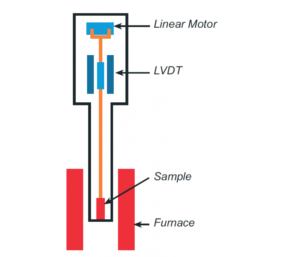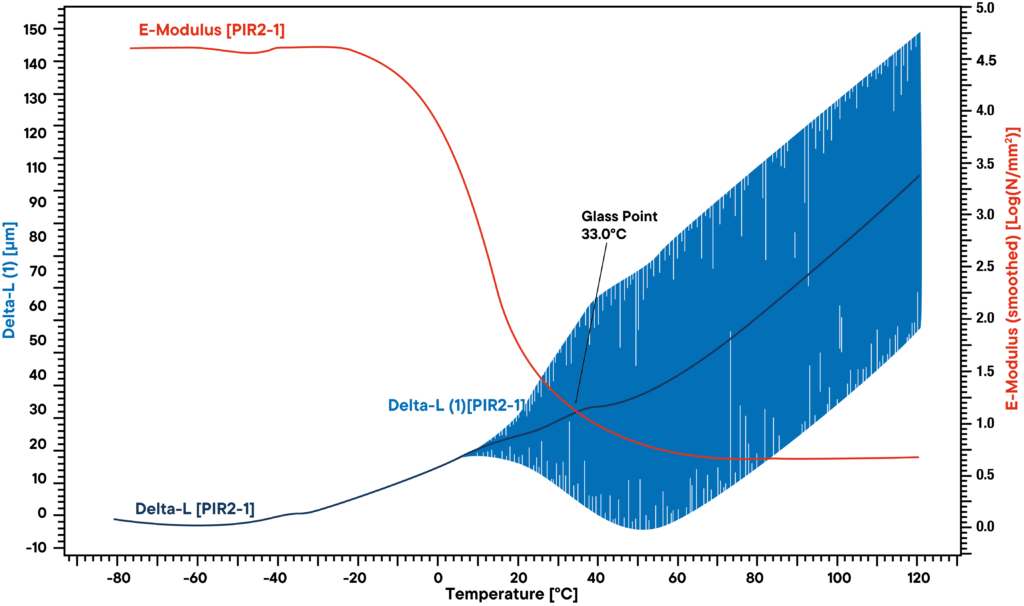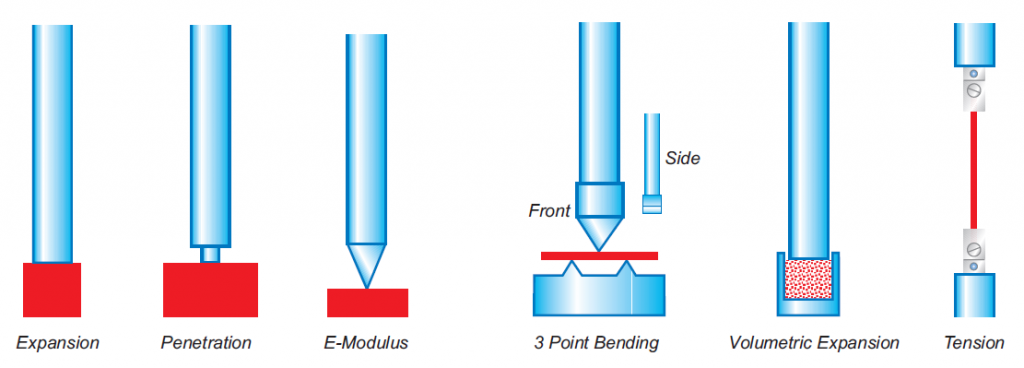Thermomechanical Analysis
Thermomechanical Analysis
Thermomechanical analysis is a method of thermal analysis mainly used to measure the thermal expansion coefficients (CTE) and is thus closely related to dilatometry.
The dilatometry measures the expansion under neglectible load and the thermomechanical analysis measures under controlled load. The displacement of the pushrod in contact with the sample is measured as a function of temperature.
The structure of a thermobalance
In classical thermogravimetry, a sample is usually placed in a crucible of inert material (e.g. platinum, aluminum oxide, gold…) and placed on a sensor in a furnace that can apply controlled atmospheres and temperatures (Scheme 1).

Setup of a thermomechanical analyser showing the sample, pushrod and displacement sensor (LVDT)
Using higher forces and/or pushrods with a tip (penetration pushrod) the softening of samples can be investigated. This is usefull for measurement of the glass transition temperature (Tg) of polymers.
Thermomechanical analysis is much more sensitive than the often used differential scanning calorimetry (DSC). Sensitivity can be increased by using oscillating forces (e.g. sinusoidal, triangular, rectangular) resulting in a oscillating response signal.

Detection of the glass transition of an elastomer by TMA with oscillating force; Tg was found at 29°C indicated by a strong increase of the detectors response signal

Different TMA measuring systems
Further types of pushrods and measuring assemblies allow for the estimation of Young’s modulus or the CTE-measurement of fibres and foils. In the latter case, the sample is clamped in a special sample holder and a slight tension is applied to the sample.
Properties and reactions of Thermomechanical Analysis
TMA is widely used in polymer science for measurement of the coefficient of thermal expansion (CTE) and stress/strain behaviour of fibres and foils. During the heating of a polymer sample solvent can evaporate, curing of yet uncured parts can occure and rearrangement of polymer chains, and/or recrystallisation can be detected as shrinkage (negative expansion).
The softening behaviour and glass transition temperatures (Tg) can also be investigated mainly by applying a oscillating force.
Standards for Thermomechanical Analysis
- ISO 11359: Plastics – Thermomechanical analysis (TMA)
Plastics – Thermomechanical analysis (TMA) – Part 1: General principles
Plastics – Thermomechanical analysis (TMA) – Part 2: Determination of coefficient of linear thermal expansion and glass transition temperature
- ASTM E831 – 19 Standard Test Method for Linear Thermal Expansion of Solid Materials by Thermomechanical Analysis
- ASTM E2113 – 18 Standard Test Method for Length Change Calibration of Thermomechanical Analyzers
- ASTM E1363 – 18 Standard Test Method for Temperature Calibration of Thermomechanical Analyzers
